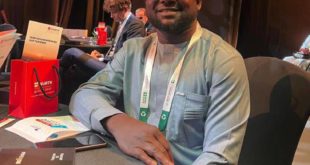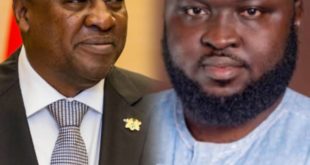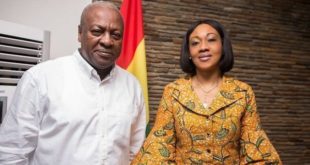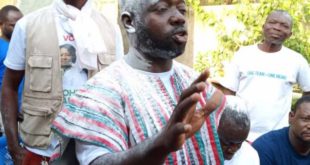At a brief but colorful ceremony held at the palace of the Overlord of Dagbon, His Majesty Yaa Naa Abukari Mahama II, Vice President Dr. Mahamudu Bawumia officially marked the start of construction on all 582 projects funded by the Gulf of Guinea Northern Regions Social Cohesion (SOCO).
According to experts, the 48 beneficiary Metropolitan, Municipal, and District Assemblies (MMDAs) in six regions mostly in the northern part of Ghana are executing the SOCO Projects, which are a significant and timely intervention aimed at addressing some major emerging and recurring challenges in the northern part of Ghana.
The beneficiary districts under the USD 150Million Credit Facility Project secured by the Government of Ghana from the World Bank include Northern – eight (8) District Assemblies; North East – six (6) District Assemblies; Upper East – all the fifteen (15) District Assemblies; Upper West – all the eleven (11) District Assemblies; Savannah – four (4) District Assemblies; and Oti – four (4) District Assemblies.
The Ministry of Local Government, Decentralization and Rural Development officials state that the SOCO Project was conceived and designed to address the effects of conflicts and extremism that have spilled over from the Sahel Region; to lessen vulnerability due to exposure to the effects of climate change; to strengthen local institutions; to enhance economic opportunities; and to foster public trust.
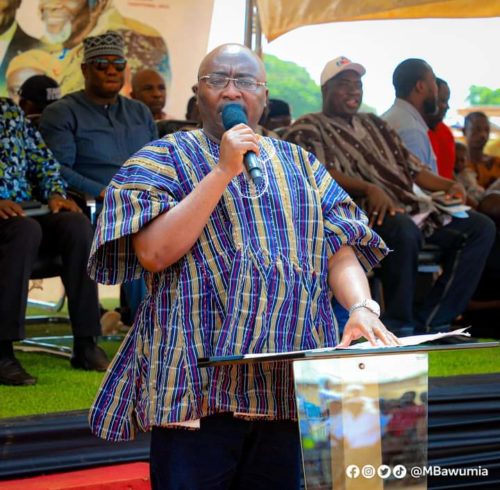
Speaking at the sod-cutting ceremony on Wednesday, October 25, 2023, Vice President Bawumia stressed that the government is taking the necessary precautions to ensure that conflicts and climate change-related threats to human safety and security in the Sahel Region do not spread to the nation. These precautions include creating meaningful jobs and offering opportunities for social, economic, and other means of improving lives.
“In this regard, the SOCO Project focuses mostly on border communities in these Regions where the citizenry especially women and youth are exposed and susceptible to the threats of terrorism from the Sahel Region. Thus, the Project focuses on dealing with issues relating to Fragility, Conflicts and Violence (FCV).
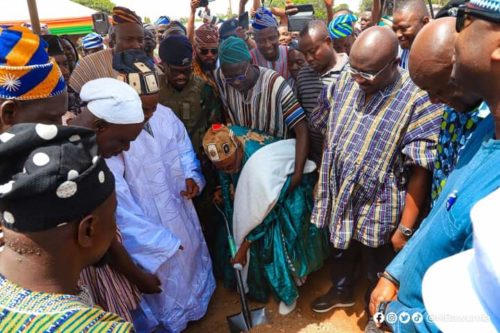
“Another issue of grave importance is the impact of climate change. Climate change poses a multiplier threat and compounds fragilities and conflict dynamics, particularly relating to access to natural resources. In Ghana, the livelihood of many in the northern part are invariably impacted by climatic conditions, as a greater proportion of the population is dependent on rain-fed agriculture, making it difficult for people to adapt and build resilience to changing conditions over time,” hence the need for the SOCO projects, he explained.
Phase I
Phase I of the project, scheduled for 2023, aims to provide socioeconomic community-level climate-resilient infrastructure as well as skill development and training for vulnerable youth and women. Water supply, creating schools and healthcare facilities, establishing markets, building earth dams, and developing other vital physical infrastructure are among the initiatives.
When the projects are carried out successfully and efficiently, they will also increase access to fundamental social and economic services, encourage local economic development, advance gender equality, and enhance environmental management. Currently, it has created jobs for 434 Community Facilitators (CFs) and other Specialists.
According to Ministry officials, the beneficiary regions and districts were carefully chosen based on the Vulnerability Index Criteria, which includes exposure to security risk, climate vulnerability, poverty incidence, and unemployment rate. Vice President Bawumia also charged all implementing agencies, at both the national and sub-national levels, to continue being dedicated to the Project’s implementation in order to meet its intended goals.
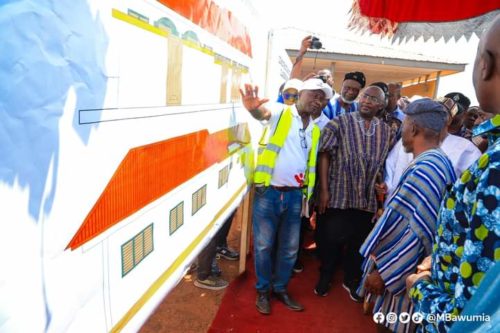
“I wish to emphasize that funds have been made available for the execution of all the subprojects, as earlier indicated by the Minister for Local Government, and I wish to caution all implementing agencies, both at the national and sub-national levels that implementation delays will not be tolerated. Indeed, we must ensure that the delivery of the project through the decentralized structures culminates in outcomes and impacts as contained in the Project Appraisal Document (PAD) and Project Implementation Manual (PIM).”
The Yaa Naa and other traditional leaders, along with the people living in the communities where his Ministry’s projects are being implemented, were reassured by Hon. Daniel K. Botwe, Minister for Local Government, Decentralization, and Rural Development, that his Ministry would work closely with them to ensure a smooth implementation. He further stated, “Your Majesty, the contractors and agencies have been specifically tasked to give you and all other stakeholders regular briefings on the progress of work and to keep you properly informed of any developments.”
The SOCO initiative, which would, according to Hon. Farouk Aliu Mahama, the MP for Yendi, will bring “real development to the doorstep of the people, unlike in the past where we heard about developments in our communities but never saw them,” was acknowledged by the government.
Source: Ghanatodayonline.com/Micheal Ofosu-Afriyie
 Ghanatodayonline.com News, Politics, Health, Education & More
Ghanatodayonline.com News, Politics, Health, Education & More
